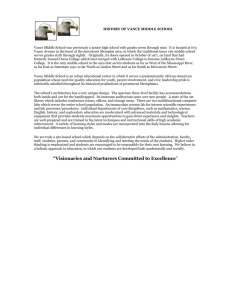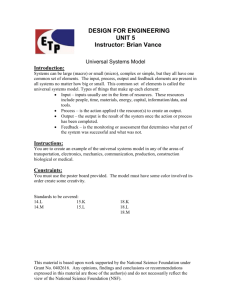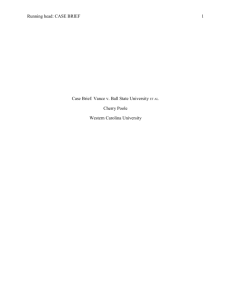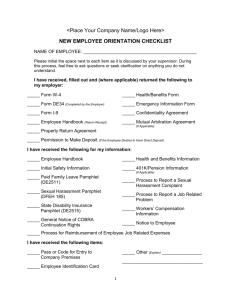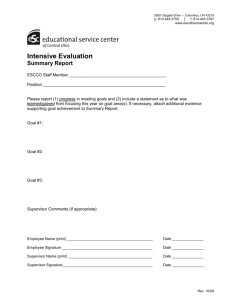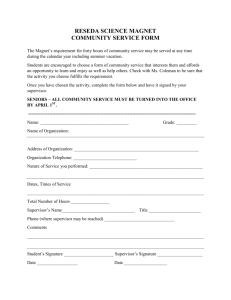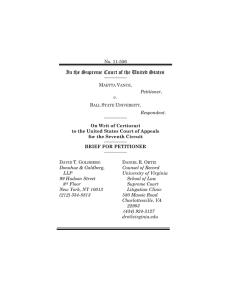Defining “Supervisor” in Title VII Cases
advertisement
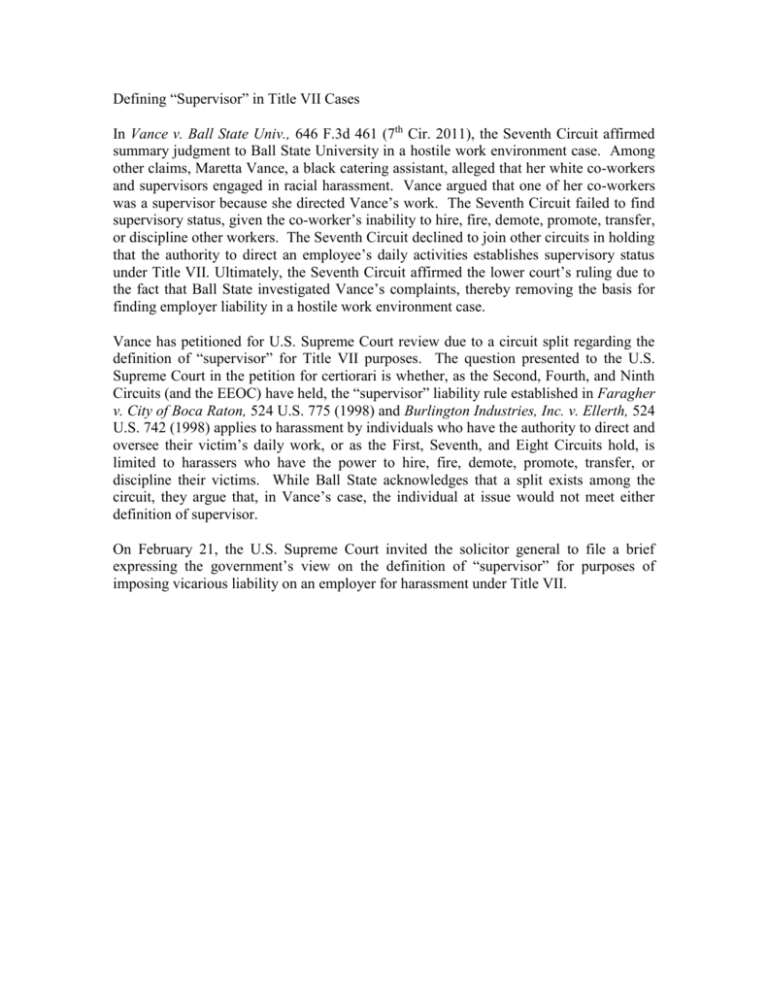
Defining “Supervisor” in Title VII Cases In Vance v. Ball State Univ., 646 F.3d 461 (7th Cir. 2011), the Seventh Circuit affirmed summary judgment to Ball State University in a hostile work environment case. Among other claims, Maretta Vance, a black catering assistant, alleged that her white co-workers and supervisors engaged in racial harassment. Vance argued that one of her co-workers was a supervisor because she directed Vance’s work. The Seventh Circuit failed to find supervisory status, given the co-worker’s inability to hire, fire, demote, promote, transfer, or discipline other workers. The Seventh Circuit declined to join other circuits in holding that the authority to direct an employee’s daily activities establishes supervisory status under Title VII. Ultimately, the Seventh Circuit affirmed the lower court’s ruling due to the fact that Ball State investigated Vance’s complaints, thereby removing the basis for finding employer liability in a hostile work environment case. Vance has petitioned for U.S. Supreme Court review due to a circuit split regarding the definition of “supervisor” for Title VII purposes. The question presented to the U.S. Supreme Court in the petition for certiorari is whether, as the Second, Fourth, and Ninth Circuits (and the EEOC) have held, the “supervisor” liability rule established in Faragher v. City of Boca Raton, 524 U.S. 775 (1998) and Burlington Industries, Inc. v. Ellerth, 524 U.S. 742 (1998) applies to harassment by individuals who have the authority to direct and oversee their victim’s daily work, or as the First, Seventh, and Eight Circuits hold, is limited to harassers who have the power to hire, fire, demote, promote, transfer, or discipline their victims. While Ball State acknowledges that a split exists among the circuit, they argue that, in Vance’s case, the individual at issue would not meet either definition of supervisor. On February 21, the U.S. Supreme Court invited the solicitor general to file a brief expressing the government’s view on the definition of “supervisor” for purposes of imposing vicarious liability on an employer for harassment under Title VII.
